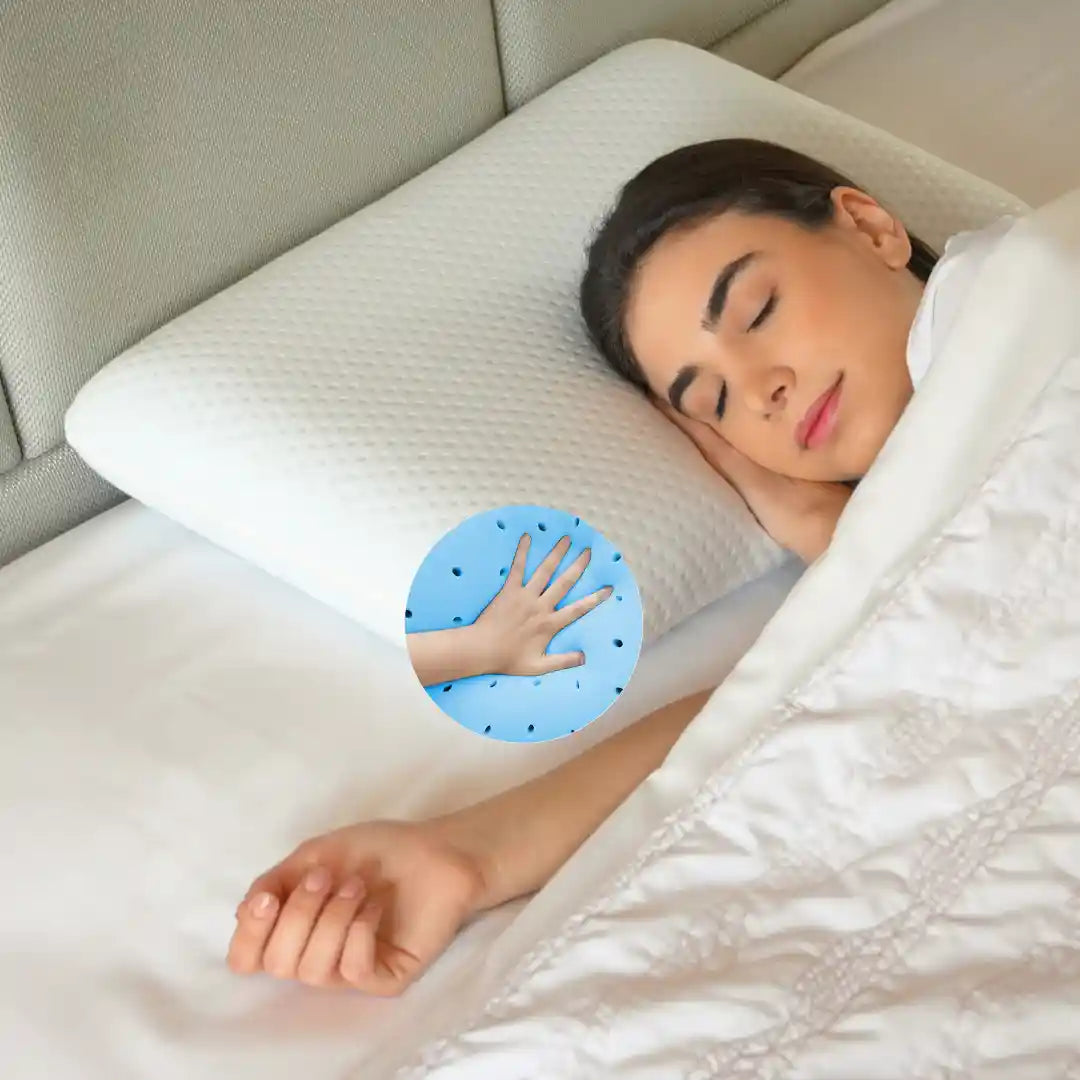
What Are the Signs of Poor Sleep Quality?
It's Sunday morning, and you slept until 10:00 a.m. to make up for all of the sleep you missed throughout the week. Even after sleeping for so long, you are exhausted and fatigued. You must be wondering what went wrong; you've slept for enough hours and are still not feeling well. It's a frustrating feeling, but there could be a simple explanation: your sleep quality is bad.
Sleep quality is the measure of how well you slept at night and if the sleep was good and restorative for your body or not. Sleep quality does not solely depend on how long you sleep; it depends on many other factors. When you don’t sleep well, your body starts to show signs of sleep deprivation. In this blog, we’ll discuss the signs of poor sleep quality.
Recommended Products
Signs of Poor Sleep Quality
Tiredness Throughout the Day
The most common sign of poor sleep quality is that you feel tired the whole day. Heavy heads, sore or watering eyes, and heavy eyelids are all signs that you haven't slept well last night. While being tired after a long day can be normal, persistent tiredness can be a sign of sleep issues. If you're not getting good sleep at night, it is important to analyze your sleep environment, sleep routine, and what could have been done better to sleep well at night.
Morning Headaches
Most people with poor sleep quality experience headaches in the morning. It is because when you don’t get enough sleep at night, your brain does not get much time to repair itself. Those who have sleep apnea experience headaches more often. Teeth grinding while sleeping can also cause headaches, as teeth grinding can tense your muscles.
Daytime Sleepiness
If you are sleeping for enough hours at night and you are still feeling sleepy during the day, Daytime Sleepiness means that your sleep quality is not good. Bad-quality sleep can also make you feel groggy and can also affect your concentration and focus. You are less likely to focus on your work or studies, and it is hard to pay full attention to things.
Skin Breakouts
You must have noticed that when you don’t sleep well at night, your face starts to look dull and your skin is not the same as it was before. Sleep controls many hormones in the body, and a lack of sleep also has a negative effect on your immune system, hence affecting your skin.
Dark Circles and Puffy Eyes
When you don’t sleep well for days, you may notice redness, puffiness, dark circles, and bags under your eyes. Also, those who are sleep deprived tend to show signs of aging earlier than others: wrinkles, lines, swelling—all of this can happen if you don’t sleep well at night.
Weight Gain
When you don’t get proper rest at night, your body can't control ghrelin and leptin properly. Ghrelin and leptin are the hormones that affect how hungry you feel. If your body lacks these hormones, you’ll feel like eating more than is required, which can make you gain weight.
You’ll Feel Moody and Depressed
If you are irritated by things easily and very often, this is a sign of a lack of quality sleep. Those who get less sleep than recommended are more likely to get angry, irritated, and mentally exhausted quickly. According to different studies, depression is linked with sleep deprivation and vice versa.
Tips to Improve Sleep Quality
Quality sleep is very important for waking up refreshed and rejuvenated. Here are some easy tips you can follow to get better sleep at night:
- Avoid watching television or using any electronic devices for at least 1 hour before going to bed; these devices emit blue light that can make it hard for you to fall asleep at night.
- Try to keep your room as dark and quiet as possible. Try to maintain the room temperature at low- to mid-60 degrees Fahrenheit. You can also invest in white noise machines or blackout curtains if needed.
- Try to avoid heavy meals before bed. Do your dinner at least 2–3 hours before bedtime so that your body gets enough time to digest the food. Limit your alcohol and caffeine consumption.
- Try to maintain a consistent sleep schedule. Wake up at the same time every day and also go to bed at the same time. Follow the same routine every day so that your body recognizes the cycles and you can fall asleep easily.
- Create a relaxing bedtime routine for yourself. You can do relaxing things before going to bed, like taking a warm bath, reading a book, or listening to soothing music. All of these can signal to your body that it is time to go to sleep.
Conclusion
Getting quality sleep at night is very essential for your overall well-being. Many of us struggle to get quality sleep at night and wake up feeling tired and unproductive during the day. There are so many signs of not getting quality sleep at night, such as persistent tiredness, morning headaches, skin issues, and mood swings. Don’t worry if you have all the signs of sleep deprivation. There are tips you can follow to improve your sleep quality, as mentioned above in the blog.
To improve your sleep quality even more, you can consider using a memory foam pillow. It is designed to provide optimal support and comfort; it molds according to the shape of your head and neck. It can help align your spine and alleviate pressure points, promoting deeper and more restful sleep.










































